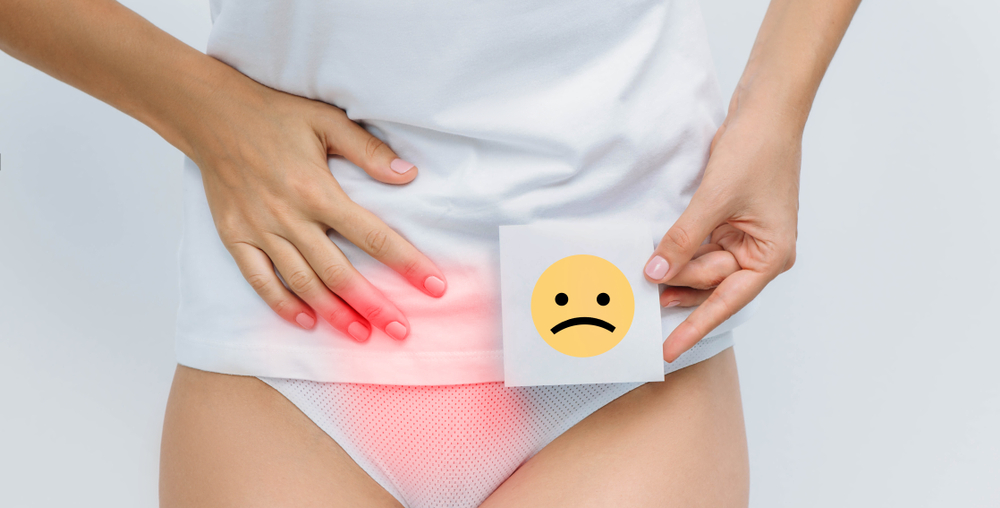Cystitis is more common than you think, but not many people know enough about the condition. Here is everything you need to know about what is cystitis and what causes it.

What Is Cystitis?
Cystitis occurs when your urinary bladder is inflamed — a kind of urinary tract infection. Inflammation occurs when a part of the body fights foreign invaders such as bacteria or virus causing swelling or redness. In the case of cystitis, inflammation comes from an infection, but it can also come from hygiene products and certain medicines.
Cystitis is relatively common, and women are more likely to get it than men. This is because women have shorter urethras, so bacteria can more easily enter the body.

What Causes Cystitis?
So, what is cystitis and what causes it? Most cases of cystitis occur when bacteria enters the urethra and reaches the bladder. However, it may not always be clear as to how that can occur.
Certain factors can increase your risk of developing cystitis, which can include:
- Wiping from back to front after using the toilet (bacteria from fecal matter may infect your urethra)
- Having intercourse
- Using urinary catheters (a thin tube that gets inserted into your urethra to drain your bladder)
- Being 1 year old or younger
- Being 75 years old or older
- Using a diaphragm
- Being pregnant
- Having a chronically weakened immune system
- Having diabetes
Another unusual cause of cystitis is an imbalance (good vs bad) of bacteria. If the bacteria in your body suddenly becomes imbalanced, it can lead to cystitis.
As stated earlier, certain medications and hygiene products can cause cystitis. Chemotherapy drugs could cause the condition, while feminine wipes and washes could also cause cystitis.
What Are the Symptoms of Cystitis?
Now that we know what is cystitis and what causes it, now we need to recognize what the symptoms are. Common symptoms of cystitis include:
- Cramping in the back or abdomen
- Feeling a pressure on your bladder or your bladder feeling constantly full
- Feeling pain during intercourse
- Finding blood in your urine
- Experiencing a low fever when you have a urinary tract infection
- Having foul/strong-smelling or cloudy urine
- Needing to urinate again even after emptying your bladder
- Frequently feeling the need to urinate
If your cystitis was caused by an infection, it could potentially spread to the kidneys, which is a more serious problem that requires immediate medical attention. Some additional symptoms that could be a sign that the infection has spread to your kidneys include:
- Chills
- Pain in your side or back
- Vomiting
- Nausea
Keep in mind that blood in your urine and fevers are not technically symptoms of cystitis. However, the two symptoms often appear with other symptoms of kidney infections.
If you think you have a kidney infection, seek medical attention immediately.
How Do You Treat Cystitis?
In very mild cases, you may be able to treat cystitis on your own. Even then, it would be ideal to seek medical attention regardless.
The main way a doctor may treat cystitis is to prescribe antibiotics. Antibiotics are often prescribed if you have bacterial cystitis.
How much and how long you will take antibiotics will depend on a variety of factors such as your health and whether it is your first infection or a recurring infection.
In some cases, you may get hydration to flush out the infection along with pain medications. In particular, this treatment may be prescribed if your cystitis was caused by irritants like hygiene products.
If the cause of cystitis is not known, a doctor may use various therapies to decrease the symptoms. Some examples include:
- Oral medications or medications that get directly inserted into the bladder
- Nerve stimulation (mild electrical pulses) that can relieve pelvic pain and potentially reduce how often you urinate
- Procedures that involve manipulating the bladder (surgery or using gas or water to stretch the bladder) to improve symptoms
How Do You Prevent Cystitis?
If you want to decrease your risk of developing cystitis again in the future, try these tips:
- Drink enough Water
Studies suggest that women who drank more water experienced about 48% fewer bladder infections (after already having one) compared to women who did not increase their fluid intake.
The amount of water you need to drink can vary greatly, so it would be best to consult a doctor. You will likely need to drink more water if you live in a hot/humid climate and if you are physically active.
- Wipe from front to back after using the toilet
- Urinate after intercourse
- Avoid feminine hygiene products that may cause irritation
Cystitis can be a mild condition that you may treat at home; however, some cases of cystitis may require medical attention if it becomes more serious. Knowing what is cystitis and what causes it is only the first step. Some simple lifestyle changes and hygiene practices can help prevent infection.
Learn more about urological health here.

























